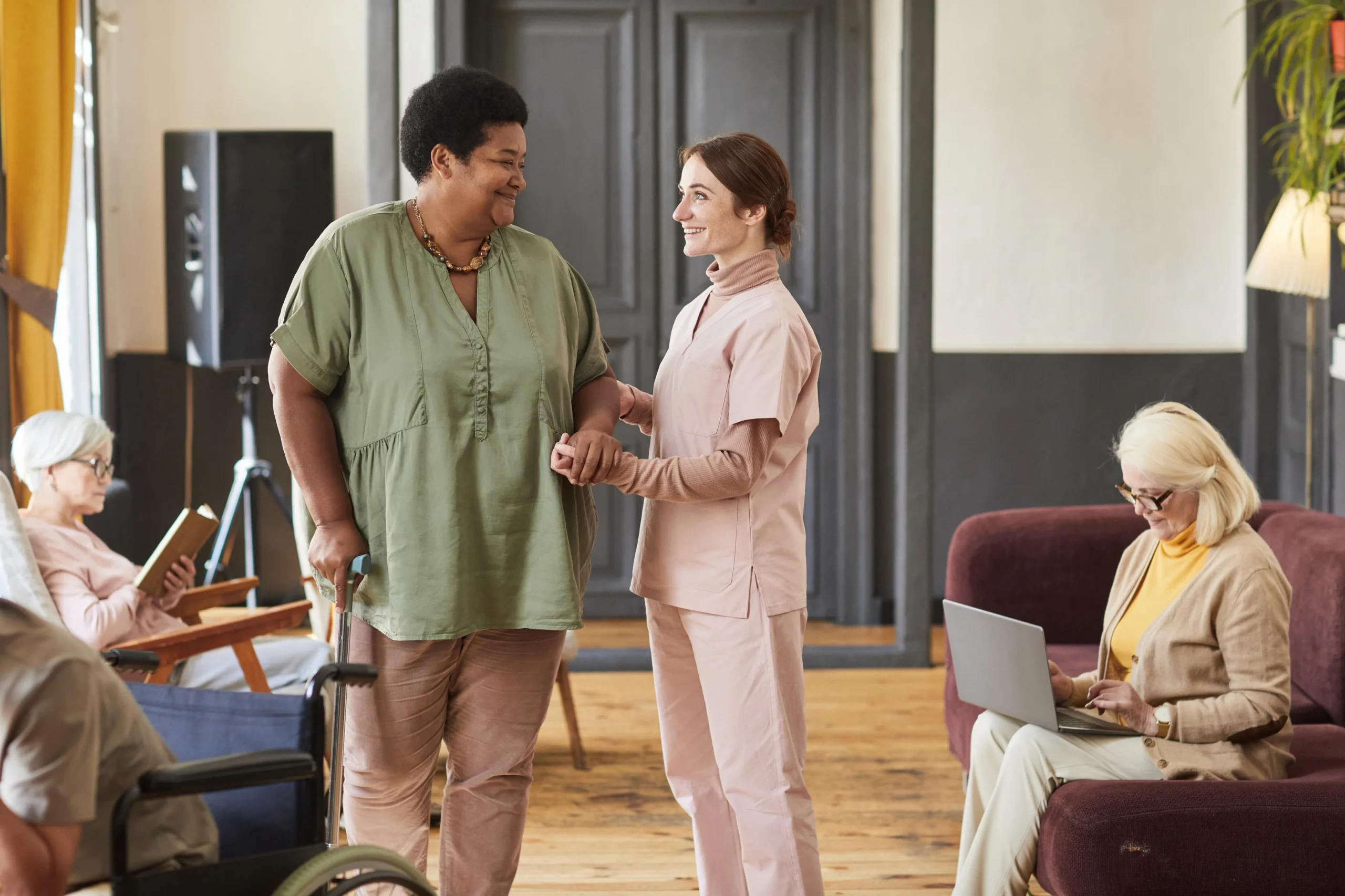(267) 778-9143
News

Publication date: August 5, 2025
Families who feel their loved one is ready for home care should understand the different aspects involved. Standard services include personal and companion care, but what’s the difference? To summarize, personal care is focused on the physical, while companionship caters to your loved one’s emotions. Still uncertain? This article will review both services, ensuring you know the meaning of each.
This individualized service is for people who may have issues completing daily tasks. It includes the following duties:
This service is more focused on emotional health. A World Health Organization (WHO) study reveals that about 14% of people over 60 live with a mental disorder. Contributing factors include loss of loved ones, isolation, reduced income, and poor health. A professional provider can help elderly clients improve emotional well-being by offering companionship care.
These examples of what it entails will help you better understand the definition:
Companion caregivers are often considered angels by family members, as they can have a transformative effect. They also relieve the stress of family caregiving, allowing relatives to focus on their personal and professional well-being.

Companion and personal care are typically combined. Your loved one may require these services if:
These services are ideal for seniors and disabled individuals. However, those with more serious chronic conditions may require home health care, which is more advanced and typically provided by a skilled aide. It is usually combined with personal care to ensure optimal support.
Is your loved one ready for additional at-home care? Inspire, a leading provider of personal and companion care, can help.
Our company is staffed by skilled caregivers dedicated to providing individualized care. We prioritize safety and your loved one’s comfort, giving families peace of mind knowing their relatives are in good hands. Contact us for the help you need to improve your loved one’s quality of life.
Personal care can be administered in an adult residence or at-home environment. While both can be beneficial, most seniors prefer private services because they allow them to age in place and are more customized to their needs.
Yes, often clients will receive both types of care from one provider.
Carer training will typically encompass both case types. Providers will learn how to handle clients physically and emotionally. Medical training is not generally included unless the caregiver is focused on home health.

Inspiring you to live independently